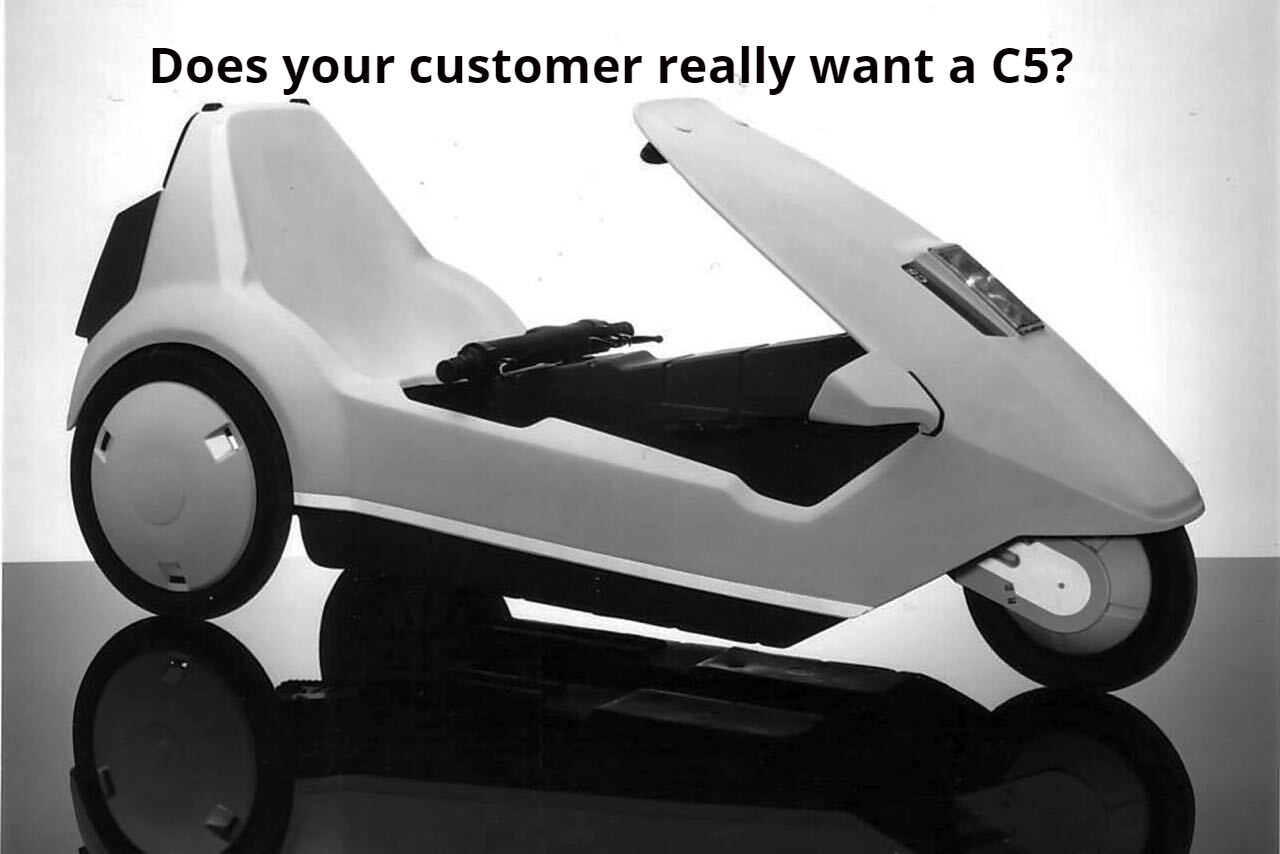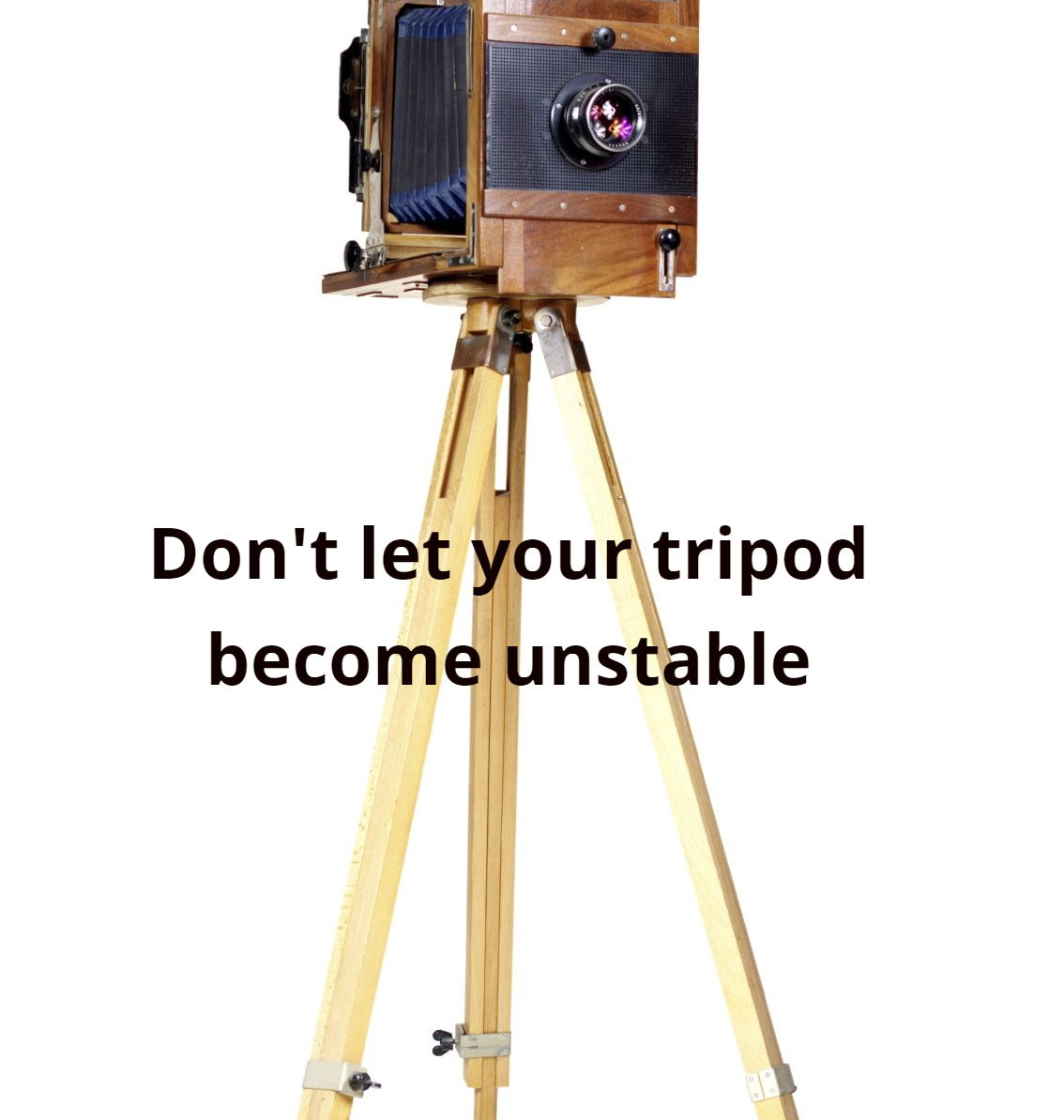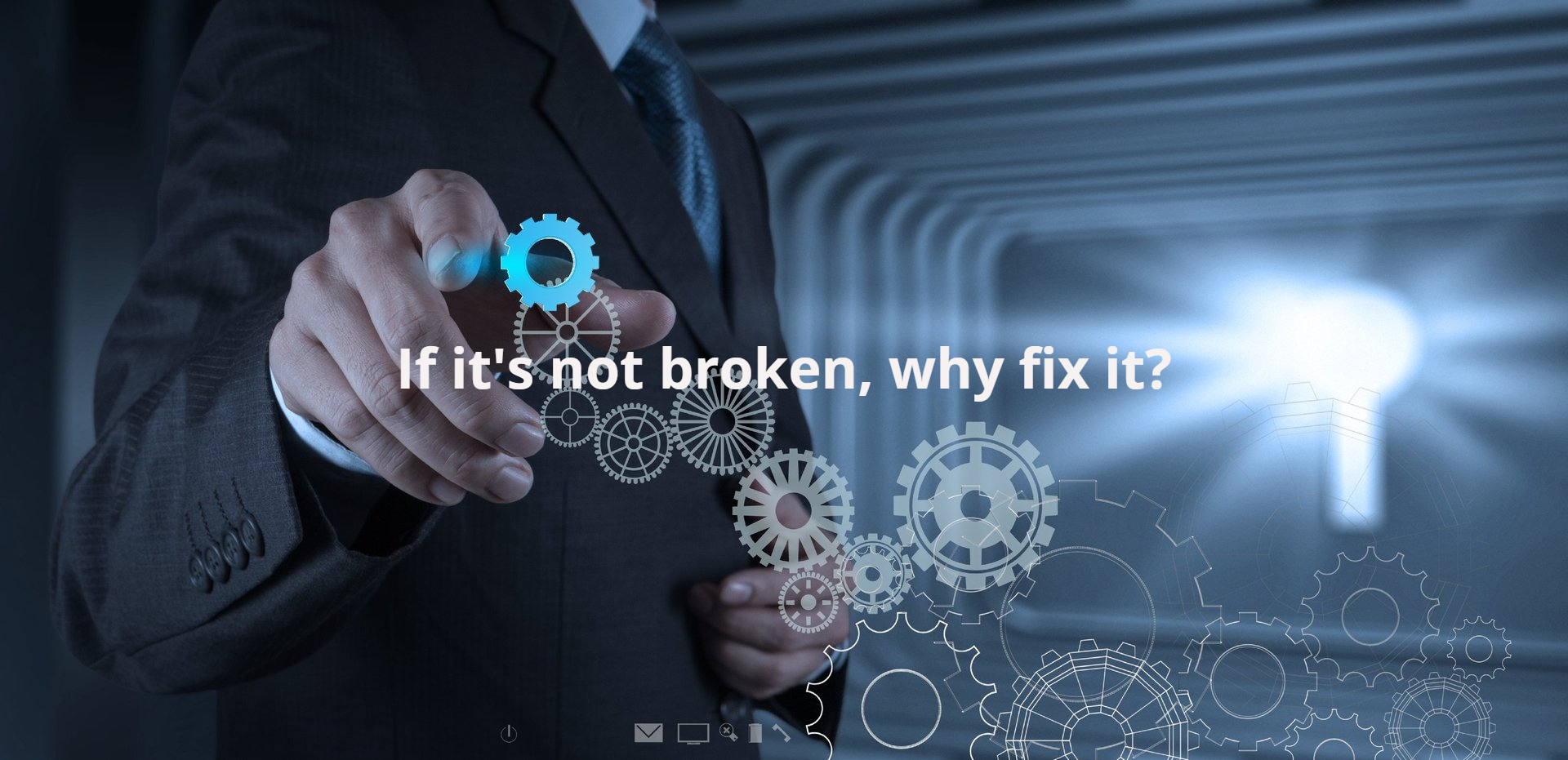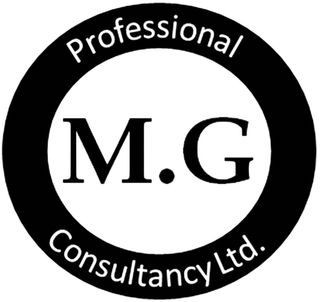Slide decks don't deliver results
Mark Greatorex • 23 September 2020
Whether something isn’t working, or you can see a great opportunity, you know that something in your business has to change. So, what are your options?
Many companies approach large consultancy firms to perform an analysis. They will organise workshops and document everyone’s thoughts. They will talk in a theoretical way and at the end of the process they will present a nicely constructed slide deck telling the business what could be improved.
Whenever I found myself on the receiving end of one of these reports there were always a few things that struck me:
Why hadn’t we just asked employees directly?
Most employees will be open and honest about the good and the bad if they are given an opportunity. I always wondered if people would be more or less open when faced with a team of people they had never met before and may never meet again beyond a 2 or 3 hour workshop. I’ve never experienced my teams getting to know these consultants well enough to develop a working, and more importantly, a trusting relationship.
The solutions always felt a bit generic.
The feedback always seemed white label. If changes or solutions were going to be suggested I wanted to be sure that those giving the advice had taken the time to understand the business, not just the vision that was taken from the website, but truly understood how the company worked. If that wasn’t understood, how could they be sure that the solution would be adopted or suitable. The most extreme example I remember was a (very large) consultancy spending just 1 hour with me (they didn’t want to meet my team, just me) after which they presented back a solution to improve performance and efficiency. No prizes for guessing that they suggested we automate more tasks!
The approach was inflexible.
I’m a firm believer that standardisation works and that there are lessons to learn from the best practice of others. However, each company is unique. You cannot produce a generic solution in a ‘one size fits all’ approach. There will be nuances that need to be taken into account. There will be constraints specific to your company that need to be considered. Whilst you should stick to the core of the solution, you need to be able to adapt to these unique variances.
Even if the greatest solution had been presented, it still had to be implemented.
An arm’s length approach to implementing a change or bringing about an improvement is never going to work. I’ve seen many consultants sat in a room for weeks at a time feeding information to management teams. What’s really needed is for the consultants to be integrated into the teams they are supposed to be helping. To see first-hand what is happening, what’s working well and what isn’t. To be able to adapt the approach, think quickly and (with governance) act and change the plan if needed.
Change doesn’t stop.
The Greek philosopher Heraclitus said the only constant is change. A team of distant consultants may successfully help with the project or change. The problem is, what do you do next time? Do you spend the money again for the next project? What you really need is someone your employees can learn from. Someone who immerses themselves into your team and shares experience, knowledge and thought processes. Building a team capable and experienced in change will help your business to continually evolve and improve.
So, what’s the answer?
You could rely on your internal resources. Many companies adopt this approach as they see it as a cost-effective solution – after all, you’re already paying for these employees anyway! There is a major flaw in this approach. Unless you are already over resourced then an internal person will have to juggle their day job with trying to manage the change. Even your brightest star is going to struggle to do both of these well at the same time.
The alternative is to look small consultancies and interim professionals as they will offer a different approach. The best ones will bring:
• An ability to be up and running quickly
• The experience of actually implementing change in real life situations
• A desire to work closely within your teams and to fully understand your business
• A fresh view from outside of your company combined with experiences to share from multiple companies and industries
• A willingness to be open and honest. They have no agenda, are not trying to further their career and have no internal politics to worry about. They are uniquely placed to give an honest view
• A readiness to share knowledge and help your team develop so that your company can use your employees experience in the future
When you bring specialists into your business you are hiring the expertise and experience that you don’t need on a permanent basis. You’ve identified a need for change. However, you have a business to run. Tying up your permanent resource is not an option.
In this situation, a truly successful change can only come by finding those professionals who are prepared to immerse themselves in your business. Those who understand that you are unique and are therefore are adaptable enough help you navigate the change.

In 1985, Sir Clive Sinclair launched his C5 to the world. The successful businessman who had brought the world the first sub £100 home computer had a new vision. For those who aren’t old enough to remember, the C5 was a new form of personal transportation. It was perhaps best described as a combination of a tricycle and an open top single seat electric car. It had rechargeable batteries designed to help you whizz(!) along through traffic and pedal power when it needed help, such as going up hills. It was launched in a fan-fair of promotion and almost instantly became a flop. Within months production had all but stopped and many see the C5 as one of the biggest product flops in history. So, what had gone wrong? Almost instantly, when launched it was criticised for being unsafe due to its low height, having too little power (you had to peddle when going uphill!), restricted battery range, and because it was open, riding around the UK streets in the middle of winter was not going to be a desirable alternative to the car or bus. The biggest failure and the most relevant question here must be this: why did Sir Clive Sinclair not anticipate the reaction he got for his product? In an investigation for the European Journal of Marketing, Andrew Marks found that the company believed they could create a market without ever doing research into what customers actually wanted. In other words, they thought they had a great idea, and therefore wrongly presumed customers would love it! The same is true of projects today. It can be easy to focus on delivering what you believe is a great idea without getting a clear understanding of what your customers want. Of course, in this context, customers could easily be another part of your company as well the external customers you are selling to. Our ability to listen to customer requirements and make sure we fully understand them can be the difference between the complete success, and the complete failure of a project. Those who’ve worked with me before will be familiar with a method I’ve used to depict this to teams. I would start with a table of objects at one end of the room and an empty box at the other. The team would then be given a list which contained about half of the products on the table. The concise instructions read: “I’m your customer and I want you to find the items on the list. Then, in order, and one object at a time, place them in the box. As a team you can only touch one object at any time. I will time you to see how quickly you can do it. Tell me when you are ready to start” Nearly every time I would see the teams doing the same thing. They would quickly jump to a solution, quite often involving a chain of people. One person would frantically try to find the items from the list on the table, passing them down the chain, to the box. At the first attempt the teams would usually complete the task in 1 ½ to 2 minutes. They would think the results were good but could be better. Giving them a second attempt usually shaved a few seconds off and sometimes led the teams to congratulate themselves. The real moment of clarity for many would come when I told them how far off the pace they were, and that I expected completion in under 15 seconds! Some would simply laugh and say it’s impossible. Others would start to ask questions: does the box have to be on the other table, or can we bring it to the same table as the objects? Can we organise the objects before we start the task to make them easier to find? Of course, the answers were yes. My instructions didn’t say you couldn’t do it, but they just hadn’t asked the questions. They didn’t seek clarity on what the customers full requirements actually were. As a result, they were never going to meet my expectations on time taken, which again I cannot recall any team asking me for. Too many projects fail to capture this fundamental element. Unless you are fully clear on your customers requirements and constraints, how will you ever meet their needs. And how will you be sure that your customer themselves even fully understands their needs. If we just take a moment to go back and look at Sir Clive Sinclair’s C5. Undoubtedly he didn’t understand his customers requirements. However, more than 35 years later, we see customer demand for electric vehicles. Maybe, if he had engaged with customers and truly understood their priorities, the C5 would have looked very different and maybe we would be hailing his creation as a revolution rather than as a high-profile failure.

It may sound counter-intuitive to say you shouldn’t give solutions but let me explain. All too often I talk to businesses whose starting point to a project is deciding on the system or solution they will implement. Usually this is because someone in the business has been approached by a salesperson, heard about a big-name technology solution, or even gone on Google! What hasn’t happened is taking that step back and fully thinking about the problem you are trying to solve. Why is that? It can be hard to admit that you don’t have all the knowledge, especially in your field of expertise. The reality is that almost no individual will ever know or be fully aware of the entire end-to-end process and have an in-depth understanding of the problems that are being faced. And of course, fully understanding the problem you are trying to solve will ultimately lead to accountability. If you capture and can articulate the issue, you are faced with two options: • Deliver a solution that solves it 100% • Be clear that the answer will only resolve (For example) 75% or 80% of the issue. Being prepared to admit you will achieve either of these can be uncomfortable. The first puts an enormous amount of pressure on the project. In many situations it’s probably also undeliverable as there’s always some kind of compromise and trade-off between time, quality and cost. The second option may mean that the project isn’t given the go-ahead. It’s easy to have the mind set of “I have a great solution to propose, so of course the business should adopt it!” This can lead to a reluctance to be honest about how effective the solution would be. In contrast, finding a solution that will solve a problem (Even if it’s not your main problem) leaves plenty of wriggle room after delivery to say the delivery was a success. And this is an easy trap to fall into. What can you do? Before you even contemplate the solution, you must be clear about the problem you are trying to solve. AND THIS MUST BE COLLABORATIVE. Someone representing each part of the end-to-end process needs to be involved. This is critical. Even if you only intend to change one part of the process, you need to be sure there are no unintended consequences of the change. Map out the process, pick out your pain points and look for any opportunities to remove waste. You’ll be surprised about how much better you can make processes by simply talking them through in a group setting with the right people. Once this is done, you can really drill into the problems left in the process and capture the size of it. Changes, whether system or process driven can be costly. Now’s the time to make sure the effort required isn’t going to outweigh the benefits. This will allow you to fully articulate and define the problem you are actually trying to solve rather than he one you think you are. You now have the foundations to document your true requirements and look for the right solution.

There is no doubt that 2021 is going to continue to be a challenging time for many businesses. I’m sure many of you are aware of the importance of people, process, technology (PPT) when bringing in change. These 3 elements work like a tripod: Getting all 3 legs to work together will lead a stable structure. However, miss just one of them and the tripod just won’t stand. It’s been encouraging to hear of the number of companies that have supported their employees through the uncertainty of the past 12 month. There’s no doubt that increased remote working has made many businesses more conscious of engaging and helping employees through this (for some) dramatic change in their way of working. There has also been a significant rise in the adoption of technology to support remote working, automation of tasks and improved customer experiences. I think it’s fair to say that the speed of implementation on such a scale as 2020 is unprecedented. However, with the necessary speed of change, reviewing the new processes, and, more importantly, full end to end processes, may not have been given the full attention normally expected. You may have written a new process covering the new technology and been more conscious of engaging with employees, but did you truly stand back and take a holistic review of the full upstream and downstream impact? It can be easy to have a blinkered view of the process in ‘more stable’ times. In stressful, times sensitive situations such as the past year, when technology is changing and there is a focus on supporting teams through change, getting the process right can be forgotten. Over the years I’ve been asked to step into situations where processes are not working effectively. All of these have had a common theme: A failure to fully understand and adapt the end-to-end process. Some of these problems have been significant, such as: • Order entry processes becoming slow and painful following the introduction of new order fulfilment technology. • Procurement changes slowing down supplier payments. • A company’s inability to invoice correctly following the introduction of improved order entry software. These were obvious, significant, and costly problems! Not all inefficiencies are this clear cut. Many of the inefficiencies I’ve improved are almost hidden in adopted working practices - the ways of working that have become embedded over years. A review of these processes can yield significant returns on the time invested to make sure you are working in an optimised way. It doesn’t matter how big or small the company or how big or small the change, don’t miss the opportunity to make sure all 3 legs of your tripod are stable.

Like most people, I approach 2021 with optimism. There is definitely light at the end of the tunnel. However, for many businesses there are dangers for 2021 which need to be recognised and acted upon now to minimise issues later in the year. The Government was quick to react at the start of the pandemic and put many measures in place to help businesses survive. However, unless companies act now, I can see some of the measures and changes in 2020 will collide in 2021 and leave many businesses exposed. Government support In an attempt to support businesses, Government spending through 2020 and into 2021 has been at unprecedented levels. Whilst this was undoubtedly needed, the big question must be how quickly the economy can recover. There is a danger that a significant number of companies are only surviving due to this support. What happens to these ‘zombie’ companies as support is withdrawn? Can the economy recover quickly enough to enable these companies to survive? The past year has also seen unprecedented protection for companies. The Corporate Insolvency and Governance Act (2020) severely restricts the use of Statutory demands or winding up petitions unless you can prove the company has not suffered a financial impact due to Coronovirus. This protection is currently due to end on the 31st March. As cash-starved business try to ‘go it alone’, I can see a significant rise in company insolvencies throughout the year. For each business that doesn’t survive, there is an impact on the entire supply chain. Continuation of supply following insolvency The Corporate Insolvency and Governance Act (2020) also included changes which restrict the ability of a supplier to suspend services when a customer becomes insolvent. Many companies first actions when discovering a customer is insolvent is to stop supplies, both to limit potential further losses and to use as leverage to have debts paid should the company try to trade out of the situation. This part of the act will now mean that, as a supplier, you will have to continue supply even if you have a clause in your contract stating a right to terminate in the event of insolvency (Replicating the type of situation which had been in place for many utility companies). The only exemptions to this (at the moment) will be if you are classed as a small business. Even showing that continuing supply will lead to hardship for your business will require a court application which is likely to be costly and certainly not quick. As this change is retrospective it will apply to any contract you currently have in place. HMRC given secondary preferential creditor status On the 1st December 2020 the introduction of the Finance act 2020 meant that in the event of a company going into liquidation, HMRC will be given a higher priority than non-secured creditors and those with a floating charge. Previously HMRC were grouped with other non-secured creditors. Although payment to non-secured suppliers is often minimal or non-existent following liquidation, these changes are almost certain to reduce the likelihood of suppliers receiving any form of payment against the money they are owed. The solution Recognising the challenges coming is an important first step. So, what next? Here are just a few of the steps you should be considering now: • Ensure your due diligence is current for your customers. The impact of the past year has been so significant that your customers financial strength could have changed considerably. Make sure you are reviewing payment trends, gathering information from your commercial teams and speaking regularly to your customers. It’s also vital to understand who the customers of your customers are. Whilst your direct customer may appear to be financially strong now, who do they supply? Even knowing the industries they supply provides great insight at a time when so many have been brought to a standstill. • Review your terms and conditions. Make sure your legal teams are aware of the changes to legislation in The Corporate Insolvency and Governance Act. Can they suggest other changes to your contract to help mitigate the risk this legislation brings? • Is now the time to review payment terms? Shortening these terms will limit exposure should the worst happen to your customers and allow you to act more speedily in applying for a court application should you need to. With Government support due to end over the next couple of months and the recent legislative changes, now is the time for pro-active action. Help put your business into the strongest possible position to survive the coming months and ensure THE BURNING FUSE FIZZLES OUT!

I think we’d all agree that 2020 has been a challenging year. It has also accelerated change in many organisations with new technology being adopted in a fraction of the time it would usually take. Whilst this provides great opportunities for many companies, there is a risk that the entire change process has not been considered. All too often I’ve been involved with companies who are ushering in a new era with new technology. Some have decided on a new complex ERP system whilst others are implementing something smaller for a specific job. A frequent misconception by many of these companies is that the new system will lead to a great change or transformation for their business. What needs to be understood is that the new system is simply an agent which will contribute to that change. On its own any new system is simply a different way to capture, store or process information. It will not change your business unless it triggers a change in how you operate. If your processes were ineffective before then they will be ineffective again after the implementation. All you have done is incur a cost to perform your processes in a shiny new environment. I see companies who take some of the biggest names in software development, systems that have cost upwards of hundreds of millions to develop and instantly want to change that system to suit their current processes. Let’s differentiate between configuration and development: You absolutely need to configure the system to suit your specific needs but when you start to change the fundamentals of how the system was designed and built you are on a slippery slope. I can recall one organisation who had taken SAP and made that many fundamental changes that some basic standard functionality had become unstable. Updates to the system were painful and costly and would nearly always lead to issues during regression testing. The solution is to adapt your processes as part of the design and build of your new system. Break this down into all the fundamental processes (Prospect to Contract, Order to Cash, Procure to Pay, Record to Report, Hire to Retire etc). Understand your target operating model and then work towards changing your processes to fit this. Companies such as Microsoft, SAP and Salesforce have built their systems with best practice in mind in many of these situations. This means that most companies are catered for within the system. Only when you have fully explored the systems capabilities and tried to change your processes to meet these should you even consider trying to make bespoke changes to the system. Get your processes right and your new system will accelerate your business transformation: Get them wrong and your system could suffer for years to come.

I’m sure most of you have heard the saying “Revenue is vanity, profit is sanity and cash is reality”. This is true today more than any time in recent years. Don’t misunderstand me we should all strive to be as profitable as possible. However, too many companies focus on either revenue or profit and fail to consider cash flow. How many of you have strong sales or a good profit but constantly seem to have too little money in the bank? It doesn’t matter how much profit you record each month or how many invoices you’ve raised, if you’re not being paid quickly enough, or expenses are leaving your business faster than payment is arriving, you will soon be in trouble. The thought of looking at cash flow can seem daunting for some non-finance people and may be the bottom of many companies’ priorities when they are busy. The reality is that you probably thought about cash flow in a less formal way when you were a paid employee: thinking about your wages coming in and your bills going out of your bank account. The foundations are there; you just need to adapt the same practice to your business. Considering some key areas in your business will help you understand your cash flow, allowing you to put actions into place to improve it. You don’t have to make it complicated and it doesn’t have to take a large amount of time. If you don’t forecast cash flow today, then keep it simple to start with. Supplier payments I would not advocate paying suppliers slowly or late in order to retain cash. However, having clear processes in place which allow you to understand when cash will leave your business is crucial. Customer invoices If you offer credit, collecting payments promptly will ensure that the goods or services you’ve provided will positively impact your cash flow. Without a clear collection process, customers may not pay you on time or even at all. Other expenses and costs If cash flow forecasting is new for you then I suggest understanding your biggest expenses initially rather than trying to analyse everything. Look at your top 3 or 4 to start with (salaries and loans are likely to be in the list for many). You can build this up over time as your confidence grows. Understanding your cash flow is the first step - something every business should be focused on! Keeping it simple to start with will make you more inclined to review it regularly. Understanding this will give you an opportunity to improve and optimise.

We are in unprecedented times! Earlier this year the Bank of England estimated that UK companies could face a cash flow deficit of £140 billion between Q2 2020 and Q1 2021 due to the impact of Covid-19. Recent announcements are only going to make this situation worse. For many businesses cash flow is going to become an issue. Credit risk will increase, and now more than at any time in recent years, companies must act to ensure they receive payments on time. Even in more prosperous times I’ve seen a number of very large organisations struggle to collect payment of invoices. This is despite the resources and skills they employ within the credit control teams. For SME’s who don’t have the skilled credit control functions or who combine collection activities with other roles in their company, this must be a very daunting time: and it’s an area some businesses don’t like to discuss, especially with customers. A common theme Experience has taught me that whilst there will always be some customers who will try and stretch out payment terms and a very small minority who will have no intention of paying, most companies want to pay their invoices on time. I fear in the current climate that more companies will be forced to try and stretch out payment terms even if it was not their initial intention. Whatever the size of a business, a common root cause I see for not being paid on time is a failure to think about collecting payment early enough in the process. Too many organisations are so focused on selling that some of the basics which will impact customers paying on time get overlooked. When should you start thinking about collecting your payments? What may surprise some people is that collecting payment shouldn’t begin with a phone call when an invoice hasn’t been paid or even just before it becomes due. Cash collection starts weeks or even months before an invoice is due. That’s because credit control forms just one element of the order to cash process and understanding this is just as vital as being able to sell goods and services in the first place. A failure anywhere in your process could be the reason you’re not being paid on time. Whilst this is not an exhaustive list here are a few simple steps every company should take to increase the likelihood of being paid on time. New customers Make sure they are credit checked. Are they financially capable of paying your company? Are you sure that you are dealing with the customer you think you are? Even something as straightforward as an incorrectly worded company name will cause problems. Do you know their potential ordering cycle so you can understand the exposure you will be dealing with? Crucially, have they agreed to your terms and conditions? Ordering process Ask if the customer has any requirements such as a purchase order number that need to be captured? For non EDI orders, has the customer put restrictions on who can place the order? If a customer places an order in writing, then watch out for their terms and conditions being attached to the order. If they are, make sure you communicate back with your terms and conditions. Do you send the customer an order confirmation? If so, include your terms and conditions again so that it’s clear that you are supplying under your terms. Order fulfilment Whenever possible the order should be completed in full. If this isn’t possible, make sure you have an agreement with your customer that you can supply part orders and that this agreement is clear on whether back orders are acceptable. Seeing real time stock levels and knowing lead times to replenish any shortfalls is key here. Order delivery Whether you deliver products yourself, employ a 3rd party company or allow customer collection, make sure there is a clear and documented point of handover. In the current Covid climate, capturing signatures is becoming incredibly rare. Think about other alternatives that are practical for your situation. For example, many home delivery firms now take pictures of the items outside your front door or even of the door and house number rather than asking for a signature. Invoicing Invoicing should be completed as soon as possible after order fulfilment. Delays to invoicing at this point can have a significant impact on cash flow as many companies’ terms are based on the date of invoice. You put all the time into sourcing, manufacturing, marketing and selling so make sure you quickly send the document to make sure you are paid for your hard work. You may also have inaccurate stock records if your invoicing drives stock being booked out. Call your customer Most customers will not be offended if you call about an invoice payment – in fact, some may even welcome the reminder. The key here is to call before the invoice is due and to be polite. That way you have time to resolve any queries before the payment is due. With new customers you could even take a slightly different approach if you find it difficult to have those initial discussions. For example, you could open with ‘As we’ve invoiced you for the first time I just want to check everything was captured correctly on the invoice’ or ask ‘Can I check we have been set up as a supplier and you have all our bank details etc’. I cannot emphasis enough the importance of a call to your customer. You can learn so much about potential issues and problems, or better still opportunities, if you hold a conversation rather than relying on emails or letters. Whilst there are no guarantees that a customer will always pay you on time, making sure you have the correct processes in place will remove barriers to payment. Not only will this help you collect payment from customers who want to pay, it will also highlight those customers who are struggling to pay as they won’t be able to hide behind errors in your process.

I always thought this was an odd comment; it implies that what you’ve already designed is the best it can ever be. This simply isn’t true! You should constantly review the processes you have in place for many reasons including: increased experience, new technology and changing customer behaviours. The current pandemic has highlighted this more as the pace of change has been, and will continue to be, relentless. Many business leaders have been forced to bring changes to their organisations in weeks rather than months. Those companies who were able to react quickly to change are more likely to have improved their chances of survival. For some this will involve speeding up transformation plans, whilst others will have diversified (I’m sure you’ve seen many examples such as pubs offering food takeaway services, clothing manufacturers using production resources to make face coverings and gin distilleries making hand sanitiser). As ‘normality’ resumes, many of these diversified businesses will revert to their core activities, or slow down the pace of transformation. Others, however, will embrace the opportunities that have opened up. Whatever change has occurred for your business, you need to take some time to review its impact and effectiveness. Change can be exciting, rewarding and challenging all at the same time. It may have led to your business survival, or even growth in these uncertain times. If you are fortunate enough to be in that position, now is not a time to sit back in congratulatory contentment. Left uncontrolled, changes over the past 6 months could ultimately be the downfall of many companies. McKinsey quote that research suggests that business transformations fail to fully deliver the expected goals or benefits 70% of the time. If true, with forced and rushed transformations over the past few months, I can foresee a period of time when this percentage increases. Acting now can help ensure your business doesn’t become one of those statistics. It's time to take stock and ask yourself the following questions: What were you trying to achieve? Did you document and track this? Make sure you review the objective regularly to ensure you remain focused on the goal. Is the desired outcome still the same? All too often businesses just assume their original objective is still the right one. You acted quickly because you needed to. Now, more than ever, is the time to re-assess the end goal. You will have learnt a lot in the last few months so be sure to re-evaluate with improved knowledge, experience and customer feedback. Is this change sustainable? Not only for your company (Can this change be scaled up? Is it profitable now and in the future?), but in a wider context. Customers will have changed some of their habits in the short term only. Other changes are likely to be more permanent. Now is the time to understand if what you achieved in the change will still be relevant in 6, 9 or 12 months time. Talk to your customers, suppliers and employees. They will all offer a wealth of experience and feedback to ensure you adapt for the future. Was your change solely operationally based? In other words, did you take the time to review your entire end to end process or was the change to ensure you continued delivering goods and services? The latter is completely understandable in times of crisis but could have driven inefficient back office processes. Order to Cash and Procure to Pay processes often fail because the impact of change was not fully assessed, and processes not defined end to end. What next? You’ve made an important start, but now is the time to check your newly implemented processes are sustainable, scalable and, most importantly, profitable.

